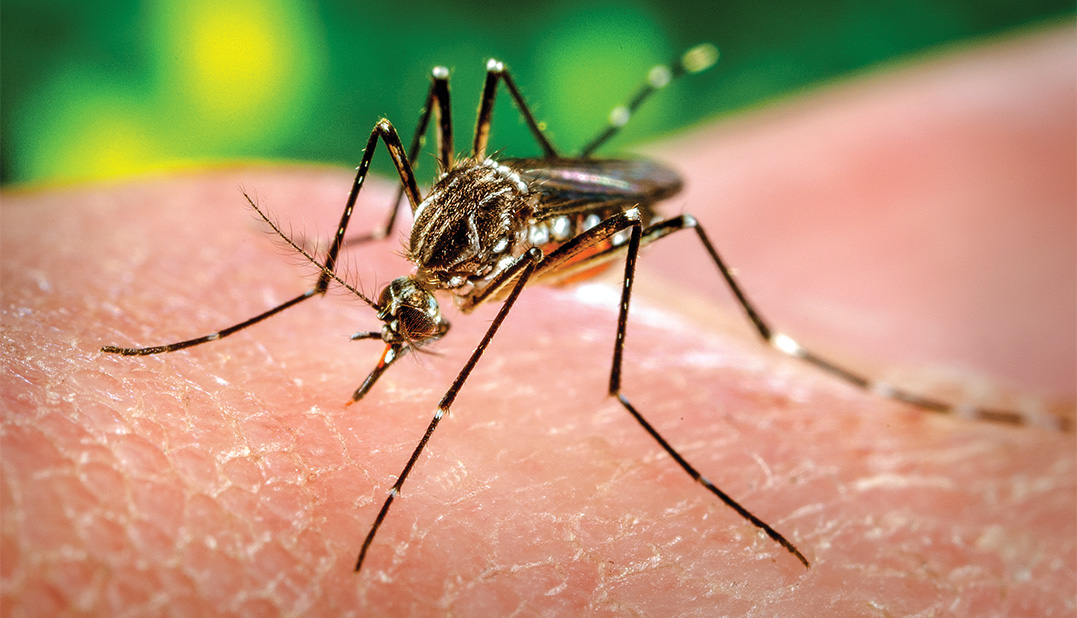August 16, 2017
By Florida Sportsman Editor
How to drive off mosquitoes without driving off game
 Aedes egypti mosquito, one of the species being scrutinized as a possible carrier of the Zika virus, among other pathogens.
Aedes egypti mosquito, one of the species being scrutinized as a possible carrier of the Zika virus, among other pathogens.
The arrival of locally transmitted Zika virus in Florida has given outdoorsmen just one more reason to avoid mosquitoes. What techniques can we adopt to deal with the pesky and potentially hazardous bugs?
First, it should be pointed out that the two species of mosquitoes that are currently known to be vectors for Zika are more likely to be encountered near human habitation than in a remote swamp. They are considered container-breeding mosquitoes. From what a mosquito expert explained to me, it is likely that millions of years ago these mosquitoes bred in tree cavities, but have evolved into a close relationship with humans and are now found almost exclusively in concert with people. The expert's counsel on avoiding mosquito borne diseases was simple: “Don't get bit.”
Protection boils down to chemical repellents, clothing, Therma-Cells, avoidance (choosing to hunt dry ground, for instance), or a combination of these.
There is a wide variety of repellents for both skin and clothing and many are remarkably efficacious. Some are described as unscented, but I have not yet discovered any that are truly odorless. They can be quite effective and helpful to fishermen, froggers, early season duck hunters and turkey hunters. Outdoorsmen pursuing whitetails or hogs, especially when there is a need to get exceptionally close may be leery of increasing their scent level with chemical repellents. Some deer hunters feel a downwind deer will detect human scent regardless and, therefore, adding repellent into the mix does not trouble them. As a traditional bowhunter, my efforts toward minimizing scent dictate nearly all aspects of my hunting strategy and are so ingrained that it would be difficult for me to consider deliberately increasing it in any way! Also some repellents damage the finish on bows or gunstocks.
Clothing is an effective barrier to mosquitoes. The major drawback, of course, is that the months the mosquitoes are the thickest are those with the warmest temperatures. This can somewhat be alleviated by carrying extra layers in a pack and donning them after the stand is reached and the hunter has cooled down a bit. There are some camouflage clothes manufactured with a mesh weave wide enough to allow air to easily flow and some of my friends swear by them. I tried one and had the luck that somewhere the mesh would be pulled tight against my body and the mosquitoes homed in on the spot. With conventional clothing, I cover all but my hands and face and brush mosquitoes off these with small, inconspicuous motions.
Clothing impregnated with repellents is available now and is said to be effective against mosquitos and ticks through many cycles of laundering. They probably have a scent, but I was unable to detect any on the ones I have seen.
With my love of traditional bowhunting, I'm reluctant to carry any but the simplest implements into the woods and, therefore, ignored my friends' suggestions for several years to get a Therma-Cell, but finally succumbed to their urgings (they were right). This is a portable unit than burns butane to heat a wafer that then broadcasts a vapor that drives away mosquitoes. There is definitely an odor to it, but the heated air off the Therma-Cell seems to cause the odor and my odor as well to rise, for when using it several different times deer have made complete circuits around my stand without showing the least sign of alarm. It is extraordinarily capable of ridding mosquitoes from around a hunter while it is burning.
We should try to eliminate mosquito breeding sites near our homes and work environments and take steps to avoid exposure when we are outdoors. Like the professor said, “Don't get bit!” FS
First Published Florida Sportsman Magazine November 2016

